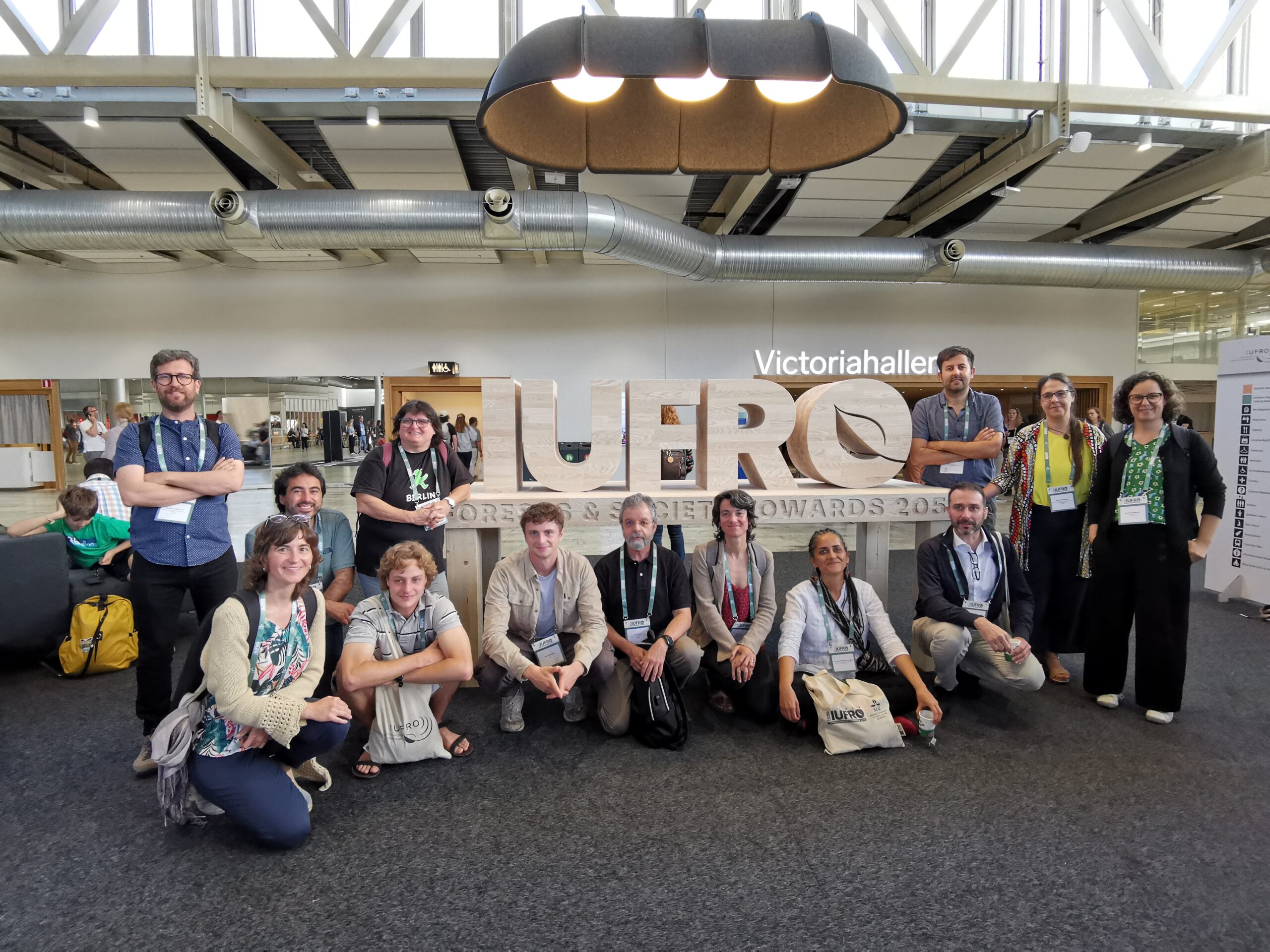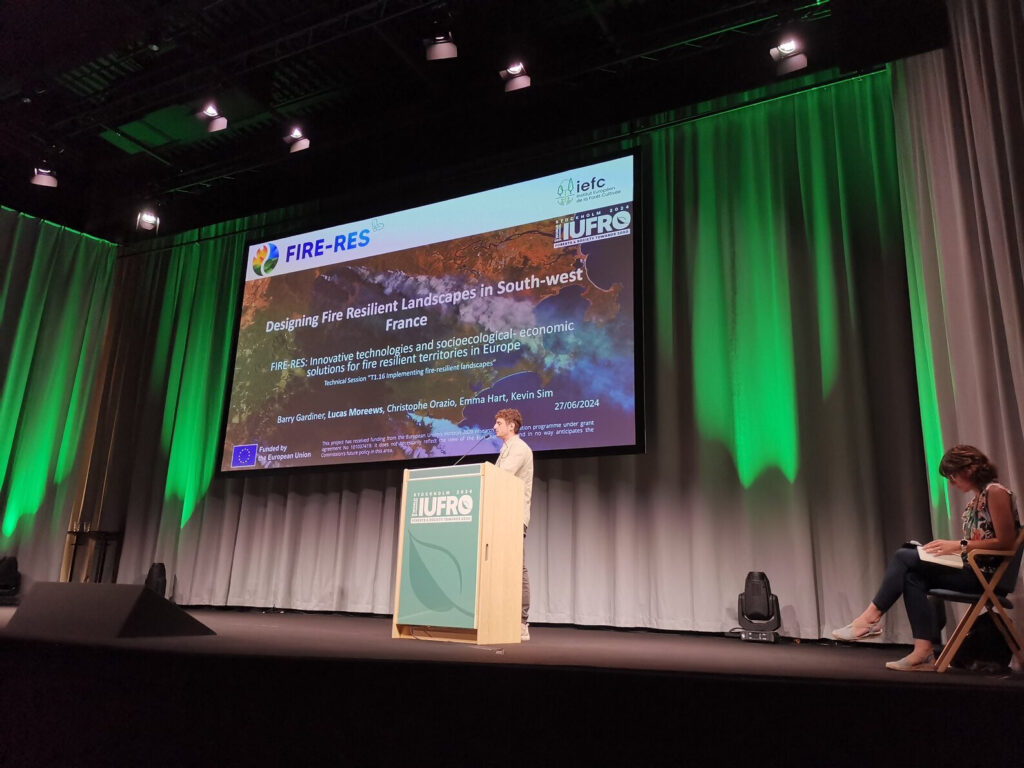The 26th IUFRO World Congress, a landmark event in the global forestry community, has concluded, marking a significant gathering with over 4.300 delegates and 3.500 presentations.

This year’s congress, the largest to date, provided a vibrant forum for scientists, policymakers, and industry experts to discuss pressing issues in forest-related research, policy-making, and management. Amidst the diverse sub-plenary and technical sessions under the main theme “FORESTS AND SOCIETY TOWARDS 2050”, wildfires appeared as a central theme, as demonstrated by a wide selection of studies from all over the world. The FIRE-RES project made a notable contribution, showcasing its innovative approaches and findings in wildfire resilience.
FIRE-RES in the Spotlight
The FIRE-RES project was featured in the IUFRO news article titled “Protecting people and societies from the threat of wildfires” with an interview of the key researchers Marta Serra from the Forest Science & Technology Centre of Catalonia (CTFC) in Spain and Marc-André Parisien from Natural Resources Canada, actively part of the discussion in the session “Implementing fire-resilient landscapes” which underscored the importance of creating landscapes able to withstand and recover from wildfires, a core focus of the FIRE-RES initiative.
Plus, the FIRE-RES partner CoLab ForestWISE appeared in the IUFRO TV Episode 1 – Forests for Sustainable Societies, with contributions from both Carlos Fonseca and Alexandra Marques.
Moreover, the congress saw a series of impactful presentations and posters from the FIRE-RES team, including “Economic resilience to wildfires” by Elena Gorriz (CTFC), “Use of near real-time satellite data applications for wildfire purposes” by Marius Hauglin (NIBIO), “Updating Biomass maps at European scale using remote sensing and machine learning ensembles” by Francesco Pirotti (UniPD), Erico Kuttchart (CTFC), Juan Guerra Hernandez (CEF/ISA) and Brigite Botequim (CoLab ForestWISE), while the presentation “Innovative technologies & socio-ecological-economic solutions for fire resilient territories in Europe (FIRE-RES project)” by Pau Brunet (CTFC) directly introduced the project’s scope and objectives.
